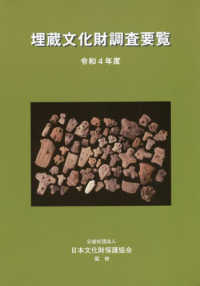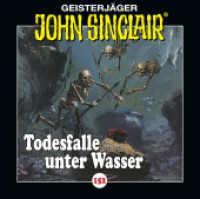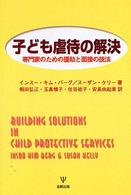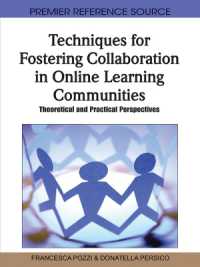- ホーム
- > 洋書
- > ドイツ書
- > Humanities, Arts & Music
- > History
- > miscellaneous
Description
(Text)
This study's goal is to outline how environmental factors can be systematically included into the perspective of entangled histories. So far, the question how access to natural resources, energy, land-use systems and agricultural practices have influenced unequal relationships of power have largely remained confined to the field of environmental history but do not belong to the established perspective on histories of empire and colonialism. The essay combines the two conceptual perspectives of "environment-in-entanglement" and "practices of comparing" in order to broaden the approach to how (post-)colonial entanglements are researched historically. Two case studies show how these two analytical frameworks can be put into practice. The first offers a new reading of the first contact situation between Columbus and the indigenous population on the Island of Hispaniola. The second dissects the idea of the "pre-adaptedness" of African bodies to tropical climates, which became one of the most pervasive justifications for slavery in the Caribbean.
Table of Contents
1. Preface and Introduction - or: Normalizing Environmental
History in the Anthropocene ................................................. 1
2. Arriving: Unfamiliar and Incomparable Environments
on Hispaniola? ...................................................................... 15
3. Extracting: Comparing European and African Bodies
in Tropical Climates .............................................................. 35
4. Conclusion: The Environment in Entanglement,
and Practices of Comparing .................................................. 61
5. Works Cited .......................................................................... 65
(Text)
www.wvttrier.de
(Author portrait)
Eleonora Rohland is professor for Entangled History in the Americas and director of the Center for InterAmerican Studies (CIAS) at Bielefeld University, Germany. Her research interests are long-term human-environment transformations, how human societies have adapted to climatic extreme events in the past and researching the history of the Proto-Anthropocene. Rohland is the author of two books, SHARING THE RISK. FIRE, CLIMATE AND DISASTER. SWISS RE 1864-1906 (Lancaster: 2011) and CHANGES IN THE AIR: HURRICANES IN NEW ORLEANS, 1718 TO THE PRESENT (SERIES ENVIRONMENTS IN HISTORY: INTERNATIONAL PERSPECTIVES, Berghahn Books: 2019). Her third book project is tentatively entitled ENCOUNTERING THE TROPICS AND TRANSFORMING UNFAMILIAR ENVIRONMENTS IN THE CARIBBEAN, 1494 TO 1804.








